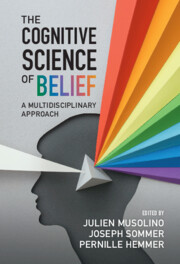Chapter 12 - Essentialist Views of Criminal Behavior Predict Increased Punitiveness
from Religion and Morality
Published online by Cambridge University Press: 03 November 2022
Summary
One bad act can permanently stain perceptions of someone’s character. Being labeled a criminal potentially has such an enduring stigma because of people’s willingness to believe that people have an internal, unchanging essence leading them to transgress. In Study 1, we developed a novel scale to assess individual differences in essentialist beliefs about criminality and found that these beliefs predicted punitiveness. Study 2 replicated these findings and also revealed that participants’ attitudes toward people who had committed crimes mediated this link. Study 3 found that participants who held essential beliefs about criminality were more likely to choose retributive punishments over those that prevented future harm. These results illustrate the importance of essentialist beliefs in the context of the legal system.
Keywords
Information
- Type
- Chapter
- Information
- The Cognitive Science of BeliefA Multidisciplinary Approach, pp. 254 - 276Publisher: Cambridge University PressPrint publication year: 2022
